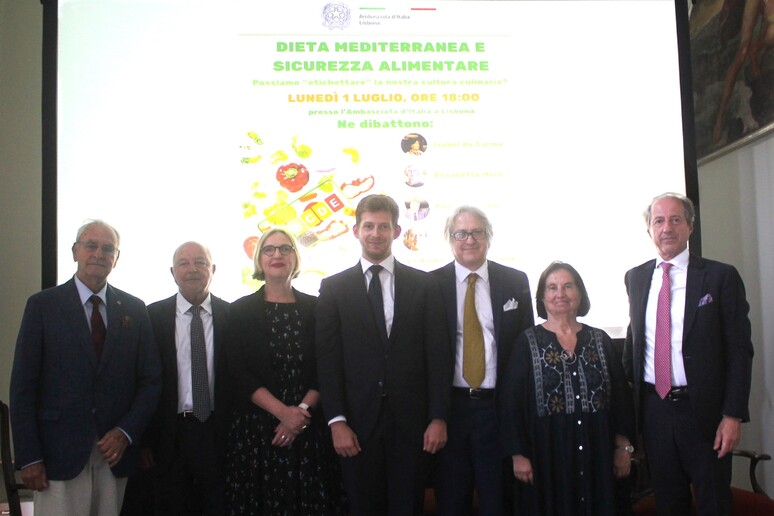As part of the ongoing debate in Europe on food labelling systems, the Italian Embassy in Lisbon organised a conference entitled 'Mediterranean Diet and Healthy Food. Can we label our culinary culture?'. In dialogue with the Portuguese Ministry of Agriculture, leading specialists from different areas related to the relationship between food and health were invited to answer this question.
After an introduction by Ambassador Claudio Miscia, the debate was opened by cultural anthropologist Elisabetta Moro, a scholar of the anthropological and historical heritage of the Mediterranean diet and author of several books on the subject, including 'The Mediterranean Diet. Myth and history of a lifestyle (2014)'. It was then the turn of the well-known Portuguese endocrinologist Isabel do Carmo, specialised in Metabolic Pathologies and Eating Behaviours, who highlighted how the Mediterranean diet is not a weight loss method but a regime aimed at guaranteeing the prevention of risks in different areas of medicine. This was followed by Paolo Fantozzi, Emeritus Member of the Georgofili Academy and Professor of Food Science and Technology, as well as founder of the Italian Journal of Food Science, who introduced the topic of consumer awareness and food safety labelling. Luca Piretta, Professor of Food Allergies and Intolerances at the Biomedical Campus in Rome, then spoke on labelling systems, and in particular on the main differences between Nutri-Score and NutrInform.
The debate, moderated by Deputy Head of Mission Simone Salvatore, concluded with a speech by the well-known anthropologist Marino Niola, whose extensive non-fiction production includes several volumes dedicated to culinary practices and food choices. At the initiative, Ambassador Miscia highlighted Italy's satisfaction with the position recently taken by the Portuguese government, which has revoked the Nutri-Score membership initiated by the previous Lisbon executive.
ALL RIGHTS RESERVED © Copyright ANSA











